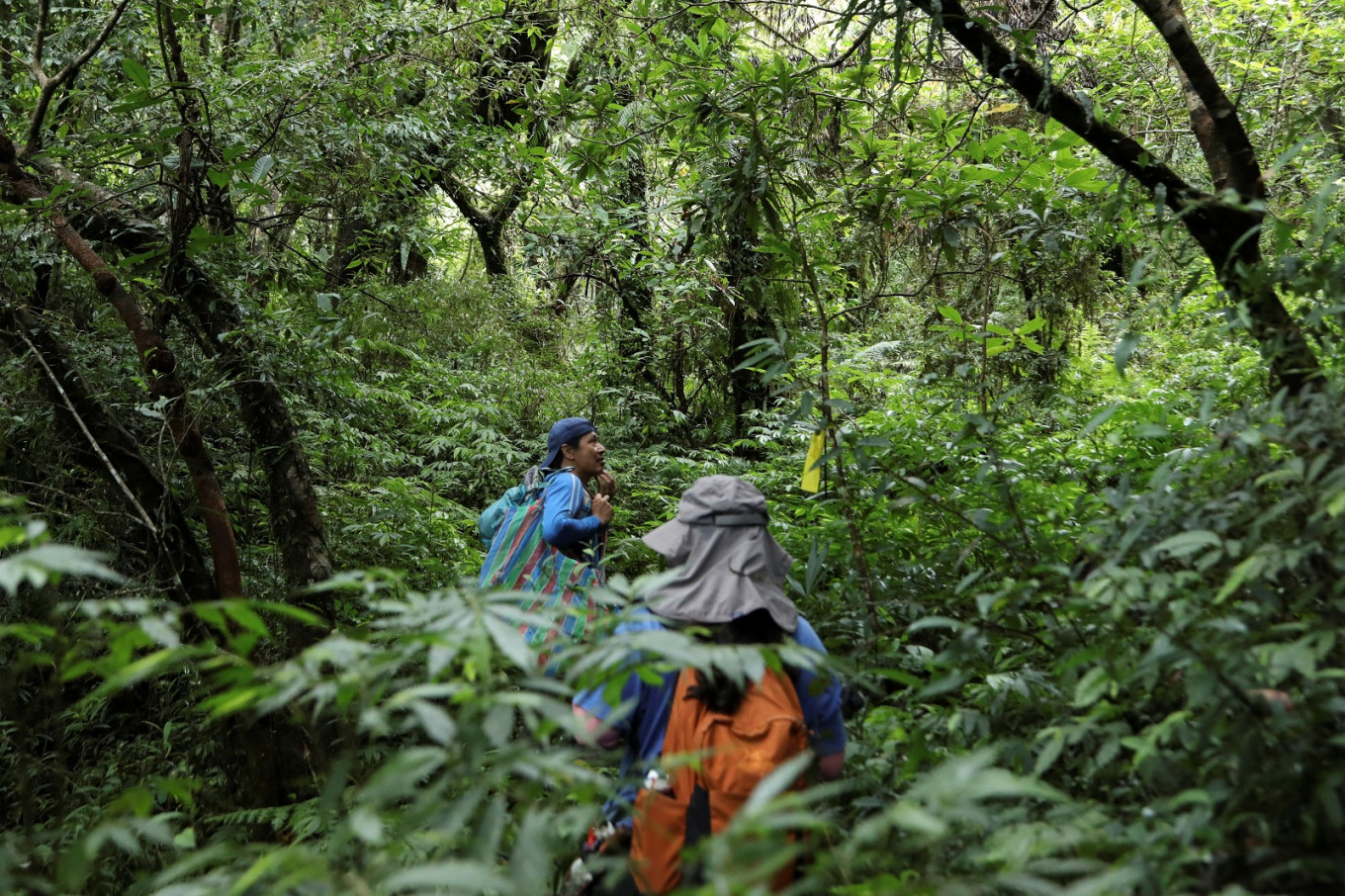Popular Reads
Top Results
Can't find what you're looking for?
View all search resultsPopular Reads
Top Results
Can't find what you're looking for?
View all search resultsTaiwan plant hunters race to collect rare species before they're gone
Change text size
Gift Premium Articles
to Anyone
I
n the forests and on remote offshore islands of Taiwan, a group of conservationists are racing to collect as many rare plant species as they can before they are lost to climate change and human encroachment.
Overseen by the Dr. Cecilia Koo Botanic Conservation Centre, the plant hunters are scouring sub-tropical Taiwan for as many rare plant samples as they can find, from the rugged eastern coast around Taitung to Dongyin, in the Matsu archipelago.
"I started collecting plants when I was still at school. I didn't used to think it was that important. But since I began working at the conservation centrer I have realized that many (living) things that used to be there, are there no longer," said Hung Hsin-chieh, a research assistant at the conservation center.
"So for many things, if you don't conserve them properly then perhaps in the future you'll no longer be able to find them."
Industrialized Taiwan is best known for its mass production of technological goods.
While it has a heavily populated, sometimes polluted, western coastal plain, about 70% of the island is covered in dense, mountainous forest, which is home to deer, wild boar and a threatened population of Formosan black bears.
Taiwan's government has made environmental protection and a shift to renewable energy a key priority, but the island still ranks poorly when it comes to tackling climate change.
Read also: ‘Companion plants’ good company for young people living alone
Last year's Climate Change Performance Index ranked Taiwan third to last in the world, its worst rating ever, though Taiwan's government disputed the data.
The plant hunters face considerable obstacles, from steep cliff-faces to heavy rains.
"Not everyone can get to the places I go to. I can stay a long time out in the wild, in the mountains or forests. I go in scattered directions. I am very good at climbing trees - not everyone can climb trees," Hung said.
Cheng Ken-yu, the moss and bryophyta collection manager at the center, said some of the plants they collect may have properties people can use.
"Then we'll have these species that we can use. Or perhaps one day when a certain habitat needs this specific species, we can provide it."
The goal is to ensure Taiwan's biodiversity is protected and that rare species that may have died out in their original habitat can one day be re-introduced.
"We hope that these species have a chance to return to their original habitat. Or one day, when we wish to create a (new) habitat, these species are able to live there happily," said Cheng.











